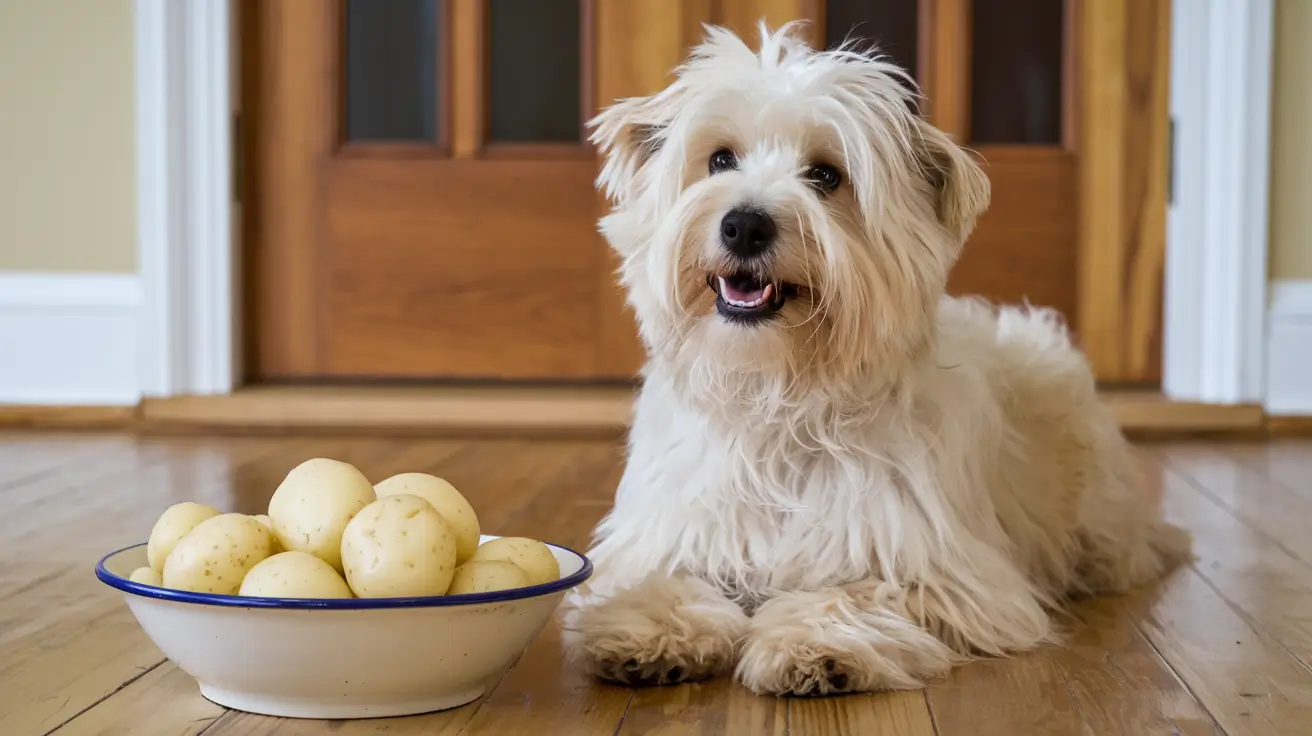Introduction: Potatoes and Dogs
Potatoes are a staple in many human diets, celebrated for their versatility and nutritional benefits. Given their popularity, it's natural for dog owners to wonder if they can share this beloved tuber with their canine companions. While potatoes can be a healthy addition to a dog's diet, it's crucial to approach this with caution. Consulting a veterinarian before introducing any new food to your dog's diet is essential to ensure their health and safety.
Nutritional Benefits of Potatoes for Dogs
Potatoes are packed with nutrients that can be beneficial to dogs when prepared correctly. They are an excellent source of carbohydrates, which provide energy and support overall vitality. In addition to carbohydrates, potatoes contain dietary fiber, which aids in digestion and helps regulate bowel movements, reducing the risk of intestinal blockage. Potatoes are also rich in essential vitamins and minerals. Vitamin C acts as an antioxidant, bolstering the immune system, while Vitamin B6 supports various bodily functions. Minerals such as potassium, calcium, and magnesium contribute to strong bones and overall health.
Safe Preparation Methods for Potatoes
Proper preparation of potatoes is key to ensuring they are safe for dogs to consume. Raw potatoes, potato skins, and any green or uncooked parts should never be fed to dogs due to the presence of solanine, a toxic chemical. Always wash and peel potatoes before cooking to remove any potential toxins. It's important to avoid adding harmful ingredients like garlic, onion, butter, or salt, as these can irritate a dog's digestive system. Safe preparation methods include mashing, baking, or boiling potatoes. Fried potatoes are not recommended due to their high-fat content and added seasonings.
Different Forms of Potatoes and Their Suitability
- Mashed Potatoes: When prepared plain without harmful ingredients, mashed potatoes are safe for dogs. They can be offered as a small treat or food topper.
- Baked Potatoes: These are safe if served plain and peeled. Potato skins can upset a dog's stomach, so it's best to remove them before sharing.
- Raw Potatoes: Unsafe for dogs due to solanine content, which can be toxic.
- Sweet Potatoes: Nutritious and safe in moderation, sweet potatoes are rich in fiber, vitamins A and C, and antioxidants. They can be served boiled, mashed, or baked.
- Fries and Potato Chips: These are generally unsafe for dogs due to high salt and fat content, which can lead to health issues.
Guidelines for Feeding Potatoes to Dogs
When feeding potatoes to dogs, moderation is key. Portion sizes should be adjusted based on the dog's size. For extra-small dogs (2–20 pounds), a teaspoon of cooked, plain potato is sufficient, while extra-large dogs (91+ pounds) can have 3–4 tablespoons. Always start with small amounts and observe your dog's reaction before offering a full serving. Potatoes should complement a balanced diet and not replace the main components of your dog's meals.
Potential Risks and Precautions
Feeding raw potatoes, potato skins, or processed potato products to dogs can pose risks. Raw potatoes contain solanine, which is toxic, while potato skins are difficult to digest. If a dog consumes a potentially harmful amount, it's advisable to consult a veterinarian. Additionally, dogs with pre-existing health conditions like diabetes should be monitored closely, as potatoes can cause blood sugar spikes.
Conclusion: Potatoes as an Occasional Treat
Incorporating potatoes into a dog's diet can offer nutritional benefits when done safely and in moderation. Always prioritize your dog's health by consulting with a veterinarian before introducing new foods. Potatoes should serve as an occasional treat or food topper, contributing to a balanced diet tailored to your dog's specific needs. By following these guidelines, you can safely share the goodness of potatoes with your furry friend.






